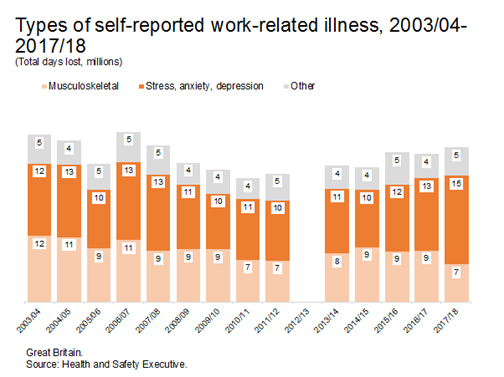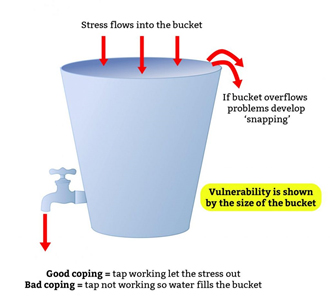So Ofsted has finally recognised the importance of staff wellbeing to the effectiveness of schools! Who knew? Of course we all knew. Happy, properly trained, well supported and motivated staff with a good work-life balance will do a better job in the classroom and require fewer absence days. But by including staff wellbeing in their inspection framework, Ofsted are giving governors, leaders, and managers in schools a strong encouragement to allocate resources and time to ensure development in this area.

Recent data shows that work related absence due to stress, anxiety and depression is on the rise across the UK workforce and suggests that the central reasons are heavy workloads and poor management. Of course the managers also have heavy workloads. The chicken or the egg? The DfE have made a commitment to reduce teachers’ work load and are encouraging leaders to ensure staff have a positive work life balance.

Of course, stress is not always an enemy. It can motivate us to greater achievement and to experimentation with different approaches and new ideas. It can build our sense of achievement that we have dealt with everything that life has thrown at us. But that takes good positive self-talk and appreciative feedback from others that you have done well (manager’s please note!). So let’s not tell people that stress will kill you. At this point I could go into hormones and brain chemistry (but I won’t). Put simply, when our stress gets bigger, we can usually rise to meet it and we can surprise ourselves. We all need to recognise our own early warning signs that we are struggling and have a selection of strategies to manage it: fresh air, exercise, listening to music that rests or inspires you, a space for mindfulness, having a laugh with someone else or – above all, to boost your positive oxytocin levels (it just slipped out!) - just talking to someone who will listen well (and not try to fix you! – note for all spouses, partners and good friends).

Only 50% of line managers say they have received training on how to support staff to manage stress. Our planning must go beyond the assumption that our staff will talk to someone at the appropriate moment if they need support. Teachers can excel at feeling they are failing and blaming themselves for things that aren’t working well. So what about developing our line managers to understand stress and mental health issues and to be effective listeners and supporters? Managers need to be interested, appreciative and approachable. For detailed conversations, solution focused coaching can empower staff by focusing on moving forward positively. For this, managers need to set the right supportive tone, suspend any assumptions, recognise the staff member as a highly resourced individual and use quality approaches to access the strengths and experiences that staff member can bring to evolve solutions that they will be committed to and that will work for them.
The government’s priorities around mental health in schools and also the new Relationships Education, RSE and Health Education curriculum, both require teachers to be able to teach about and support pupils on mental health issues. Well, mental health and emotional wellbeing begins with each of us. It’s the old flight safety analogy of putting on your own mask first, before helping the children. If you are unconscious then you can’t help anybody else! So why not ensure that training on teaching about mental health also demonstrates how lessons from positive psychology can help teacher wellbeing as well.



